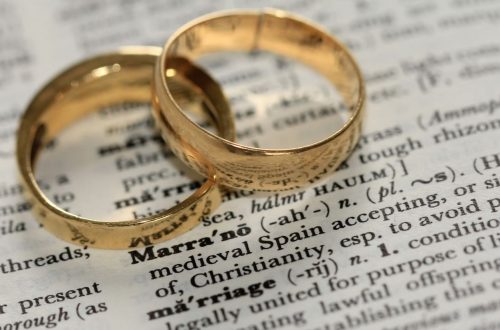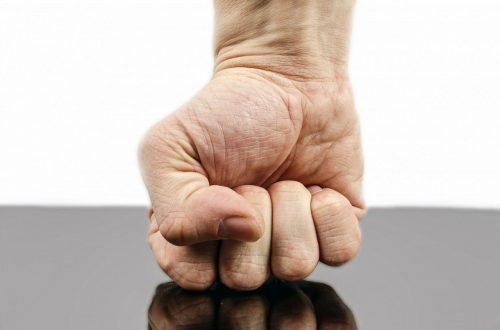I am so proud of all of the medically accurate and thoughtful information I publish for @TeenVogue, and I’m even prouder of my writers.
— Vera Papisova (@VeraPapisova) July 14, 2017
Vera Papisova is the editor of the wellness section of Teen Vogue–the section that published a recent article teaching teenage girls how to enjoy being sexually brutalized by their boyfriends. A few days ago Papisova posted a tweetstorm defending herself. If you want to read her remarks on Twitter, click on the link above. I’ve compiled the tweets in the paragraphs below. She writes:
I am so proud of all of the medically accurate and thoughtful information I publish for @TeenVogue, and I’m even prouder of my writers. Everything in the wellness section is published based on years of research and talking to experts and people of all identities daily. DAILY. All of my writers are marginalized people who deserve to have a platform to speak for themselves, & reach young people who identify w/ them.
As a woman, I have been deprived of so much information that could have saved me from traumatizing and isolating experiences in my life. But I am also white, straight-passing, cisgender. I am grateful for my privilege, and I choose to use it to pull other people up.
The biggest mistake I see in criticism I get on a daily basis is that the world underestimates young people. Let me remind you: Not only do studies show providing information to young people BEFORE THEY NEED TO USE IT is how we HELP people make safer, better choices — We need to be realistic about how difficult & confusing it is to be young, be vulnerable to various systems of oppression, to feel helpless. Young people are ALREADY experiencing trauma, facing mental illnesses, having sex, and dealing with REAL problems. They deserve information. I refuse to be part of a culture that TEACHES anyone to accept feeling alone, unsafe, unsupported, unloved.
Internalized hatred starts early and the more privileged someone is, the more impact their internalized hatred, ignorance, and misguided judgment will affect the population. Privilege DOES NOT exempt anyone from experiencing trauma and pain, but it is also not an excuse to deny others of their life experiences. This is why EVERYONE deserves to have AS MUCH information as we have available about bodies, minds, relationships, sexuality, gender, etc. I will keep asking, “who’s missing a seat at the table?” And I will continue to do my best, which is all I can do, to offer them space.
Thank you @pfpicardi for trusting me with the @teenvogue platform. I am here because I believe in young people, and you should too.
Papisova offers two lines of defense for the article encouraging teenage children to sodomize one another. First, she argues that children need education about how to have safe sex. Second, she argues that failure to provide such education constitutes oppression against minorities.
Sexual-revolutionaries have been making the first line of argument for years. They were making it even way back when I was an adolescent, and it boils down to this; Those kids are going to be having sex anyway, so we might as well show them how to do it in a way that keeps them from getting pregnant or from contracting a disease. One of the chief problems with this argument is that it acts as if the only problem with teen sex is that it might be “unsafe.” It is an argument entirely unconcerned with the moral or spiritual formation of minor children. And in fact it seems to presuppose and perhaps even to encourage sexual promiscuity among children. And I think teens have gotten the message.
As problematic as that first line of argument is, it is Papisova’s second line of argument that is really troubling. Whether she realizes it or not, it is an argument in favor of sodomy among minor children based on intersectionality.
As I have written about before in this space, intersectionality is a theory of human identity that is all the rage on college campuses and increasingly in popular culture. It is the idea that a person’s identity is “formed by mutually interlocking and reinforcing categories of race, gender, class, health, and sexuality” (Carter 2017). Intersectionality teaches that people experience either oppression or privilege based on all such identity categories simultaneously, and it is identities based on gender and sexuality that are coming into play in Papisova’s remarks. She is concerned about teenage girls and boys (gender identities) who engage in a particular kind of sexual act (sexual identity).
Papisova checks her privilege up front, noting that she is a “white, straight-passing, cisgender” woman. According to this brand of identity politics, it is the responsibility of the privileged to become an ally of the oppressed. That is why Papisova writes, “I am grateful for my privilege, and I choose to use it to pull other people up.” Failure to become an ally makes one complicit in oppression at some level. Because oppression is wrong, everyone is morally obligated to become an ally. Among other things, becoming an ally means affirming the sexual orientations and gender identities of marginalized people. Being an ally means providing such people a “safe space” just to be who they are. And that is why Papisova concludes, “I will keep asking, ‘who’s missing a seat at the table?’ And I will continue to do my best, which is all I can do, to offer them space.”
Papisova’s remarks are filled with boilerplate language from intersectional activism. And it is why Papisova believes she needs to be educating minor children on how to safely sodomize one another. In this intersectional worldview, it is oppressive to withhold such information from minor children. Indeed, the true ally is morally obligated to share such information with children or risk doing them harm. If this argument seems strange to you, you need to know that it doesn’t sound strange to a generation of college students who have been indoctrinated by this ideology.
And it is precisely here where this ideology concerns me as a Christian. This brand of intersectionality cannot be reconciled with a biblical worldview. Intersectional activists define allyship in terms that require affirmation of homosexual and transgender identities. And yet faithful Christians may never affirm lesbian and gay sexual behavior. Nor can they ever define human identity as the sum total of a person’s fallen sexual desires. Because the Bible teaches us to love our neighbor (which is not the same thing as “unconditionally affirm your neighbor”), faithful Christians can never be an ally in the way demanded by intersectional activists.
And in this case, Christians are morally obligated to oppose what Papisova feels morally obligated to defend—the practice of sodomy among minor children. If someone wants to argue that my conviction in this regard amounts to “oppression,” I suppose I will have to live with that. But what I cannot live with is the idea that the sexual degradation of minor children is okay. On the contrary, if I am to love my neighbor as Jesus commands, I must oppose with all of might both the degradation and the bankrupt ideology that underwrites it. And so must you.



